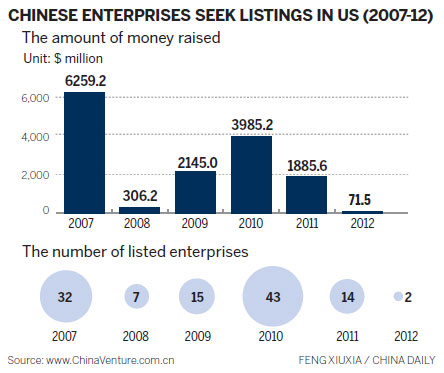A dispute between US short seller Citron Research and a group of Chinese Internet business investors is to be settled in court, after the two sides spent the last month exchanging accusations and counter-accusations.
Analysts said the lawsuits now filed against the short seller may not help Chinese stocks regain confidence among overseas investors. But the spat, which has been damaging the reputations and share prices of some Chinese companies, may help them improve levels of transparency.
|
 |
Short sellers earn money when a stock declines, and Citron is a research firm that publishes reports online about companies, and has become reasonably well-known among marker-makers.
Qihoo 360 Technology Co, a US-listed Internet company in China, has now "initiated legal procedure against Citron Research and its main contributor Mr Andrew Left" for the short seller's "untruthful publications or statements regarding Qihoo 360", the company said in a statement.
Kai-Fu Lee, a high-profile information technology executive and former head of Google China, has also filed a lawsuit against Citron for alleged defamation, he said in a post on social networking site Linkedin.com on Thursday.
The spat came after more than 60 Chinese Internet industry leaders, led by Lee, protested against Citron for what they called unfair and inaccurate attacks on Chinese companies listed in the United States, in a joint letter last month.
Left has countered by filing a lawsuit against the people who signed the joint letter, according to media reports.
Some analysts, however, said the most helpful way for Chinese companies to dismiss the accusations would be to make a definite move to improve their levels of corporate governance.
Commenting on the latest move, Duncan Clark, chairman of BDA China, a consultancy company that follows China's IT industry, said: "Sunlight is the best disinfectant", referring to the opinion of some, that Chinese companies need to improve their transparency.
Xie Wen, a Chinese IT expert and former president of Yahoo China, part of Alibaba Group, agreed.
"Professional investors are unlikely to change their mind just because of the reports of short sellers.
"They will choose a company despite what reports say - but the company itself should be proved to be valuable," he said.
Citron is blamed for affecting the share prices of 21 Chinese overseas-listed companies since 2006, with 16 companies seeing their prices drop more than 80 percent, and seven being forced to delist altogether.
In the first nine months of this year, 18 overseas-listed Chinese companies, including 15 in the US, have said they are looking to delist because of dropping share prices.
Michael Andrew, global chairman of KPMG International, told China Daily that he thought there were many good Chinese companies that should be listed on Nasdaq or other overseas stock exchanges.
But reputations need to be improved first, after what the market has seen as a series of serious transparency issues surrounding previous listings.
"Many US investors thought Chinese companies lack the right corporate governance, accounting standards and information transparency," Andrew said.
"The Chinese IPO issuing model is still very immature", and companies should improve their corporate management structures to achieve more global standards, he added.
By the end of September, only two Chinese companies had listed this year on US stock exchanges.
In comparison, 14 Chinese companies listed in the US capital market in 2011, raising a total of $1.89 billion, and the year before, 43 listed, raising $3.99 billion, according to data from ChinaVenture Investment Consulting Ltd.
ChinaVenture said that Chinese companies still see strong incentives to raise money in the US market through IPOs, even though US investor confidence there remains low.
As market valuations remain low, amid the global economic downturn, any recovery in new listing numbers may not begin until next year, the report said.
Contact the writers at [email protected] and [email protected]
